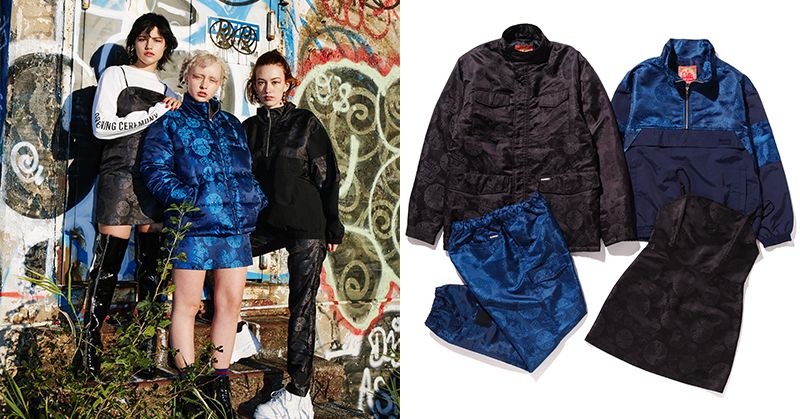

"It will be very meaningful, far from the grandiosity of previous ceremonies. "I think the great achievement of the creative team of this ceremony is that they have managed to accept the empty seats as a fact and still retain a focus on the athletes," Balich said. There is widespread concern among the public over the safety of holding the global sporting spectacle amid the pandemic and many Japanese fear the Olympics could turn into a super-spreader event.
#X GIRL X LARGE OPENIN CEREMONY HOW TO#
"The Japanese team have to fight between how to promote their aesthetic and combine the fears and concerns associated with the Olympic Games and the infections and the disease." That already gives a serious distance between the athletes in the stadium," said Balich, who also produced the ceremony for Turin's 2006 winter Olympics among others. "The number in Rio was 12,600 athletes and officials at the parade. Mass choreography is not happening obviously, because of COVID-19," he said. "That (pandemic) of course has consequences. The opening ceremony in a way is going to be unique and focus only on the athletes," Balich said. "There will be several hundred marshals to guide the athletes for the parade. Instead of more than 10,000 athletes marching into a capacity-crowd stadium as usual, the team parade will be smaller, in a largely empty Tokyo Olympic stadium bar a few hundred officials, and with tight social distancing rules.

This has also affected the opening ceremony, with not all athletes present at the teams' parade as many fly in just before their competitions and leave shortly after to avoid contacts as much as possible. So far there have been 67 cases of COVID-19 infections in Japan among those accredited for the Games since July 1, when many athletes and officials started arriving.

Japan this month decided that participants would compete in empty venues to minimise health risks. Rising COVID-19 cases in Tokyo have cast a large shadow over an event that, having already been postponed last year because of the pandemic, will now take place without spectators. "We have to do our best to complete this unique and hopefully the only one of its kind Olympics." Very Japanese but also in sync with the sentiment of today, the reality," Balich, who was in charge of the 2016 Rio de Janeiro Olympics, said. Nevertheless with beautiful Japanese aesthetics. "It will be a much more sobering ceremony. Instead it will be a scaled down affair, a "sobering" performance, Marco Balich, longtime opening ceremonies executive producer, and now a senior advisor to the Tokyo ceremonies executive producer, told Reuters in an interview. Tokyo's grand opening on Friday will have none of that splendour or grandiosity. TOKYO, July 21 (Reuters) - Forget the mass choreography, the huge props and the cornucopia of dancer, actors and lights associated with an Olympic Games opening ceremony.


 0 kommentar(er)
0 kommentar(er)
